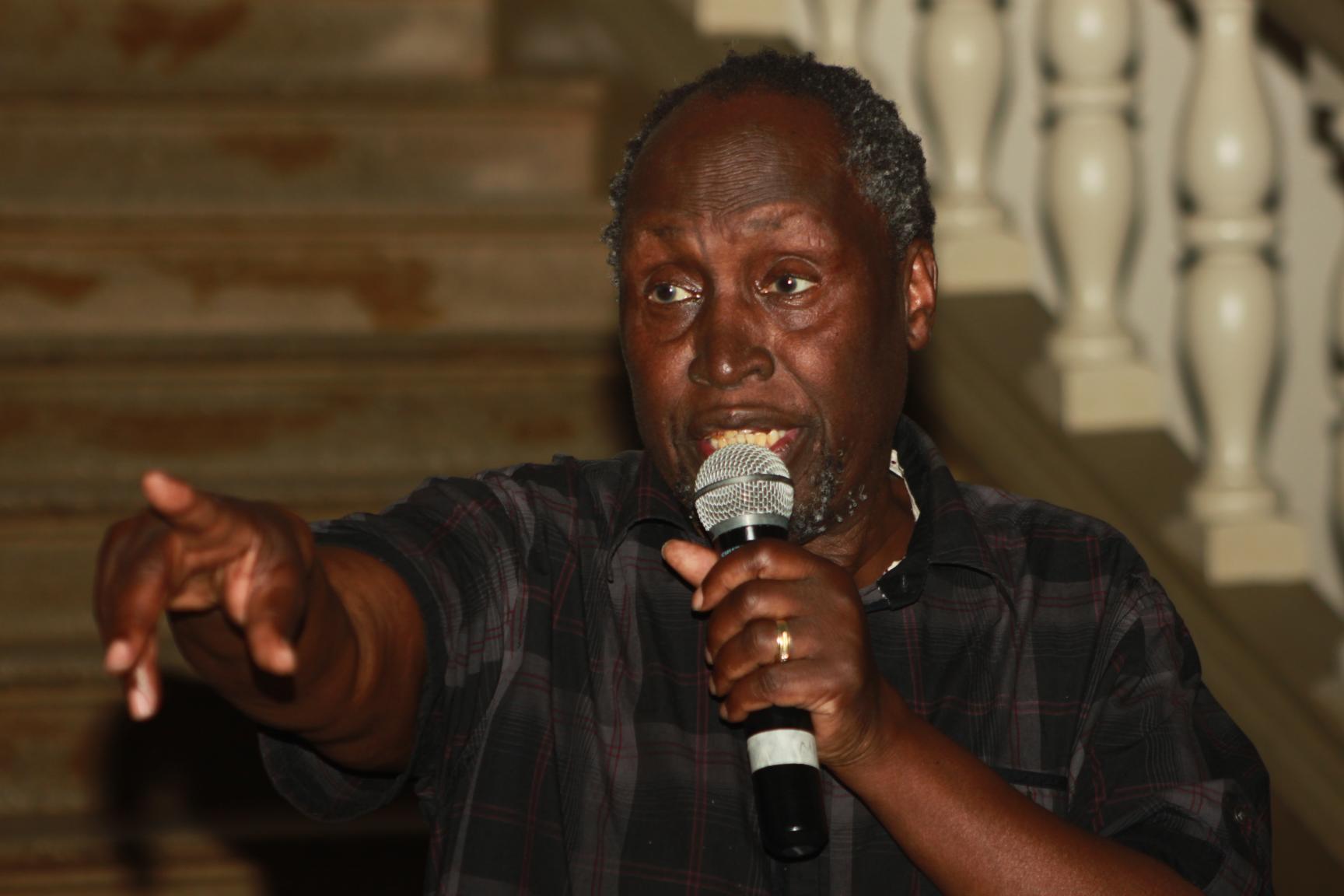

Sixty-three years ago, it once bore water from a colonial dam, a name long lost or mumbled under the breath of empire. Now it flows with the aftermath: ghostwater, whispering histories no textbook ever wrote.
It is here, on this moss-darkened curve of culvert by my farm, that I sat on Madaraka Day. Legs swung over a shallow hush of creek shadow, alone but not lonely, the kind of solitude that invites old spirits to keep company. The kind that doesn’t need to speak aloud, because the wind is already saying enough.
Madaraka Sunday. The newspaper headlines remind me Ngugi wa Thiong’o is dead.
Ngugi, our ace national storyteller for as long as Kenya has ruled herself, is gone. These words sat strangely, as if no one had quite figured out how to fit them into our minds. This isn’t news. It is an ache. An unsummoned silence that seems to walk through the land, brushing shoulders with those who remember.
There, in Tongaren, the village retreat breathed more than rural or ancestral air. It breathed memory, mother tongues and that sacred tension between what is natural and what has been made to seem natural by force. You notice such things more sharply when a great tree falls in the forest.
Ngugi was such a tree. His words had roots, and they shook up the soil we thought we understood.
What does liberty mean here. Madaraka, in this breeze, with this creek, on a culvert cast in forgotten colonial steel? What does it mean on Madaraka Day, when the flag is raised and the television speeches sound like echoes of a borrowed dream?
Liberty, I think, is not arrival. It is interruption.
I recall how Ngugi interrupted, English first. Then form. Then even his own fame. He became a stone in the throat of the smooth lie of our Madaraka. He returned to Gikuyu not out of nostalgia but rebellion. Not because it was quaint but because it was sovereign.
He wasn’t trying to be indigenous in the way tourism brochures want us to be — colorful, quiet, compliant. He was indigene in the rawest way: rooted, thorned and unwilling to be translated.
He understood that liberty is not the mere removal of chains, but the refusal to speak in the language of the jailer. Even when the jailer is long gone and the jail has been repainted in the colours of independence.Madaraka. Self-rule.But whose self? And whose rule?
As I sat, I heard the Mayeku Hill speak in question marks. The nearby shrub rubbed against itself like nonsense. The air spoke existentialism. All reflected the bubbles of the creek. The creek shaped its smooth sail upon blunt rocks. And liberty, the fallen sage said, is not a gift that was given. It is a habit that must be learned.
Ngugi knew that culture is not a performance. It is a practice. And language is not a costume. It is architecture. The moment you live in a borrowed language, you begin to furnish your house with borrowed thoughts. And soon, you do not own even the chair you sit on, the words you cry with or the dreams you mistake for your own.
But we called it progress. Called it modern. Call it Kenya.
Now we mourn him.
Our hero once wrote from prison on toilet paper because that was the only medium oppression did not steal from him. We don’t understand such insistence anymore. We write essays on our phones, and the phones belong to companies headquartered far from the land. We think this is freedom — because the chains are invisible now.
His death does not feel like the ending of a life. It feels like a riddle has been returned unsolved. A question posed again to the land:What is liberation if the soul still kneels?
I look at the city sky with fellow Kenyans today. It is not mournful. It is exact.And suddenly, I am ashamed.Not for Ngugi, who died with his name intact, his tongue unpurchased.But for us, the inheritors of self-rule who spend its value like foreign currency.
We have not read him well enough. We read him for class, not for crisis. We read him in English, then moved on to more palatable authors. We spoke of him as a symbol, not as a signal.
Now he is gone. And I wonder: Is a nation truly alive when its prophets die unheard?
I do not weep. The media is already weeping creeks. Slowly, through roots and stone, whispering his name back into the veins of the mountain.
This culvert, once colonial and now unclaimed by any empire, carries a vigil not of silence, upon which I sat as national leaders spoke of nationalist dreams deferred. Madaraka Day, this goldenish day we mark our self-governance.But we must ask: What does self-rule mean if the self has been stripped of memory? Ngugi reminded us that the struggle is not only political. It is metaphysical.It is not only who governs but how we imagine governance. And how we connect to the soil that hosts our flag.
He lived long enough to watch our republic forget what it once vowed never to forget. And he never ceased writing. Even when we stopped listening.
From the culvert of philosophy, I sat upon on Madaraka Sunday. I saw cows grazing lazily across a slope where millet once thrived before imported sugarcane seeds changed the script.
I saw children walking with jerrycans made in China, shouting in Sheng’ by a creek that no longer flows without meekness. And I felt foul wind break over me with echoes of empty political stadia rhetoric.
I speak these words now, not to Ngugi, but because of him.
“We have not finished the work. We have merely renamed the chains.”
A luta continua.





![[PHOTOS] Sifuna, Haji clash over Ojwang’s death](/_next/image?url=https%3A%2F%2Fcdn.radioafrica.digital%2Fimage%2F2025%2F06%2Fe09252e8-200f-4139-b8d4-992bd3555345.jpg&w=3840&q=100)







